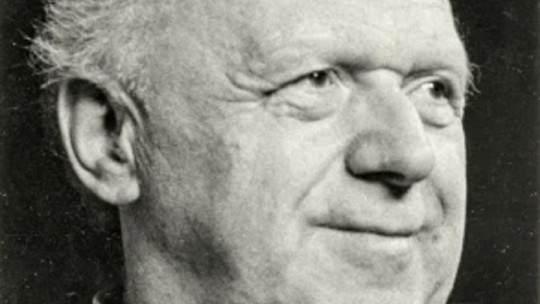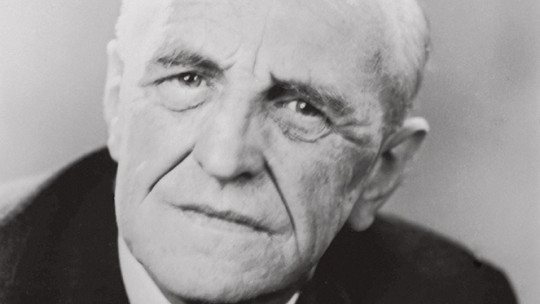Gerd Gigerenzer is a well-known German psychologist , currently leader of the Max Planck Institute for Human Development and the Harding Center of Risk Literacy. This is an important author who, in addition to holding the previous positions, has studied and analyzed the role of heuristics and intuition in making decisions in our lives.
Throughout this article we are going to do a brief review of his figure, through a brief biography of Gerd Gigerenzer and a look at his main contributions to the field of psychology.
A brief biography of Gerd Gigerenzer
Gerd Gigerenzer was born in Wallersdorf, Germany, on September 3, 1947. During his youth he expressed artistic interests, and in fact he has mentioned in an interview having played the banjo and even having played in the group “The Munich Beefeaters” that the band would put together. sound to the first television advertisement for Volkswagen Golf. However, at a certain point he decided to leave that world and devote himself to the academic world.
He graduated in psychology from the University of Munich , and in 1977 he received a doctorate in psychology from the same university with a thesis that would analyze non-metric multidimensional scaling as a model of judgment behavior (Nonmetrische multidimensionale Skalierung als Modell des Urteils Verhaltens). That same year he would begin working as a psychology professor at the same institution where he had trained him.
In 1984 he would move to the University of Konstanz, where he would stay until 1990 when he moved again to the University of Salzburg. Two years later he would leave that position to work as a psychology professor at the University of Chicago.
Throughout his career as a professor, he would be the doctoral tutor of another great and renowned psychologist, Daniel Goldstein, with whom he would begin to study. theorize regarding the recognition and heuristic processing of reality
It would be in 1995 when, due to his contribution to the psychological field, he would be appointed director of the Max Planck Institute for Human Development, a direction that he continues to hold today. As of 2008, in addition to that, he also directs the Harding Center for Risk Literacy. He also directed the Center for Adaptive Behavior and Cognition (ABC) of the same institute. He married Lorraine Daston, a well-known historian of science and great authority regarding the history of the scientific and intellectual development of European modernity, with whom he has a daughter in common.
His life today
He is a member of the Berlin-Brandenburg Academy of Sciences, as well as the German Academy of Sciences and an honorary member of the American Academy of Arts and Sciences and the American Philosophical Society. Throughout his career he has received numerous awards , such as the German Psychology Award, and has several Honoris Causa doctorates from other universities, such as the Open University of the Netherlands. His publications are also highly recognized, highlighting among them Instinctive decisions. The intelligence of the unconscious (Calculated Risks, Gut Feelings: The Intelligence of the Unconscious). Finally, he is linked to several projects, such as one in which he works together with the Bank of England, “Simple heuristics for a safer World”.
His work and areas of research
Gerd Gigerenzer’s contributions to the field of psychology are many, of which we are going to mention some of the best known.
Elements that stand out throughout his career are interest in aspects such as decision making, the role of heuristics the restriction of time and the uncertainty in it and the great power of intuition, social intelligence, risk communication and the training and strategies of doctors, judges and managers in decision making.
Among all this, perhaps the best known is the defense of the role of intuition in decision making, which has traditionally been considered something aberrant and that makes the choice difficult. Unlike most authors, Gigerenzer defends that the majority of people make decisions based on their intuitions, based on unconscious intelligence.
The author also indicates that intuition is a product of evolution, the result of learning the rules that our species has been acquiring and incorporating into its repertoire. This is used in making all types of decisions, especially those that involve emotional elements such as choosing a partner.
Mental shortcuts are useful
Studies carried out at the Max-Planck Institute show that, contrary to what logic seems to dictate, Those people who are guided by intuition tend to make effective decisions when using shortcuts. These mental shortcuts would save cognitive resources and allow quick decision-making, with the strategies used for this being called heuristics. However, a logical analysis requires locating and analyzing all the possibilities, something that requires time and generates a less efficient choice.
The risk exists in choosing the rule that best applies to each case, something that, for example, could have negative consequences in the formation of prejudices and stereotypes, and cognitive biases may appear. In these cases, the problem would be that one of the rules learned and acquired throughout the subject’s own life is being generalized, but not one applicable in the particular case in question.
Another of the elements for which it is best known is the idea of the “Adaptive Toolbox” , which mainly proposes that we have different cognitive systems, using one or the other depending on how we need to adapt to a given situation. Different domains of thinking require different cognitive mechanisms, this idea being contrary to the existence of a universal strategy.









